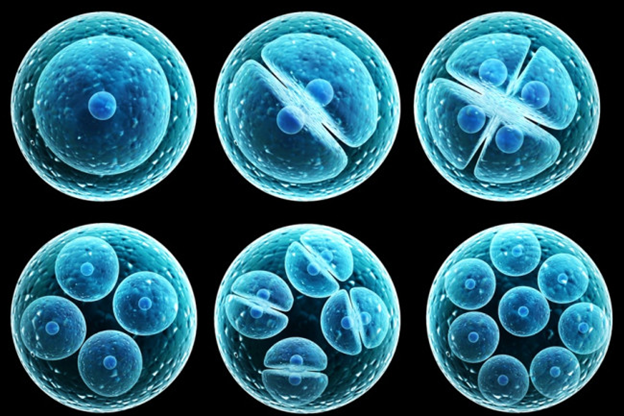There are various environmental factors responsible for accelerated aging, some of which are lifestyle, stress, pollution, exposure to certain toxins, injuries and disease. Recent studies with proper evidence have shown that the reversal of aging of cells is feasible. Aging is driven by epigenetic changes (non-genetic influences on gene expression) and the reversal of these changes result in extension of lifespan.
Stem cells act as body’s repair system by replacing and rejuvenating aging cells for the maintenance of health. The youngest and the most vibrant adult mesenchymal cells available are the mesenchymal stem cells which have been derived from the tissues of the umbilical cord. These cords which have been donated are rigorously tested for probable infectious agents as well as the medical history.
Mesenchymal stem cells can impact the processes of white blood cells. A macrophage is a huge white blood cell that is a vital part of our immune framework. Macrophages work by eliminating dead cells and infectious agents from the blood that can cause inflammation (M1) and diminish inflammation (M2). M1 macrophages are related to accelerated aging, and M2 macrophages are related to anti-aging. Mesenchymal stem cells play the role of shifting M1 macrophages to M2 type. They, in this way, give the human body more tools to battle the normal process of aging by reducing inflammation significantly.
Why do our cells age?
Aging is a natural as well as complex process brought about by the effects of environmental factors, genetics and the routine wear and tear on our bodies. Biologically, the cause of our body’s aging is the loss of efficient cell replication. Each time a cell undergoes division, a bit of the telomere is lost until they become critically short. It is the progressive damage to these functions and structures that we characterize as aging. The causes of aging also include glycation, oxidative stress, side reactions, aggregation of proteins, mutations etc. Therefore, with time as we age, the cells of our bodies do too, which finally lead to their damage and death.
Role of stem cells in anti-aging
Stem cell therapy helps in replenishing the supply of stem cells and allows the body to rejuvenate and repair different organs. Cellular tissues such as bones, joints, organs and skin are regenerated by the unique factors of anti-aging possessed by stem cells.
According to the stem cell treatment at DVC Stem (stem cell clinic located in Grand Cayman), each patient receives approximately 300 million stem cells during treatment. These stem cells are generally the ones harvested from samples of the umbilical cord and all of these undergo an extensive level of testing for assurance of viability and sterility. These stem cells are then packaged and stored in cryogenic form (a temperature 100 degrees below zero). During intravenous administration, the cells are thawed to bring them near body temperature in a sterile lab and are administered over several hours by exceptionally trained physicians.
The high amount of 300 million cells not just covers for the regular losses that have been happening progressively for years but is capable of replacing the cellular losses a thousand times over. Transplantation of stem cells intend to supplant the hold of the undifferentiated cells lost practically throughout the last 15-20 years. The body’s organs are renewed and rejuvenated after such a significant replenishment of cells.
Patients who have undergone stem cell therapy for anti-aging usually experience enhanced immunity, improved capacity for physical activities, thickening and improved quality of hair, a feeling of vitality and rejuvenation and an overall improvement in the quality of life.
Are Stem Cells the Cure for Aging?
With the current existing information on stem cells, it is actually attainable to delay aging and improve both health and life expectancy. Stem cells can play a significant part in deferring the aging cycle. Stem cells combined with anti-aging genes can make a complex shield, which can forestall the impacts of maturing. The incorporation of "youthful" cells into the human body can restore existing cells and permit the body to age all the more gracefully and even reverse some of the effects of the aging process.
Aside from longevity and diseases, aging science is going to revolutionize the entire cosmetic industry by the renewal and growth of a new healthy skin. A healthy skin at any age is viewed as younger and aesthetically more appealing than an unhealthy skin. We may not get younger, yet we can look younger. With expanding age, the amount and capacity of stem cells decline drastically and is a clarification for why healing capacity is diminished over lifespan. More the stem cells available in our body, more are able for the migration to damaged regions and repair them by secretion of growth factors, which could be incredible new class of active ingredients for skin therapeutics.

